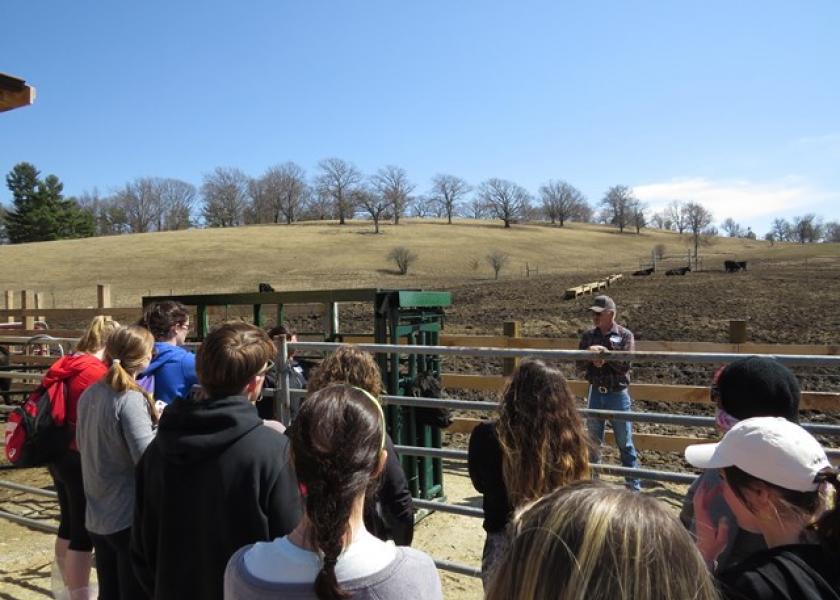Cattle Farmers are “Raising the Steaks”

On Monday, April 13, the beef checkoff hosted 20 students fromBridgewater State University for a “Raising the Steaks” immersion event at Gibbet Hill Cattle Company in Groton, Mass.
The group comprised nutrition and fitness professional students working to become Registered Dieticians, athletic trainers, physical therapists, health educators and related professions. Their professor, Kathleen Laquale, had attended a past “Raising the Steaks” event -- part of the checkoff's Northeast Beef Promotion Initiative -- and found great value in it. She has since incorporated beef nutrition information into her curriculum. The latest tour showed millennial students how farmers work diligently to produce safe, wholesome beef for grocery stores and restaurants.
Prior to attending the tour, the checkoff shared beef nutritional information and the latest research on beef sustainability for Laquale’s students to review in class. The educational event began with a viewing of the Farmland documentary during the students' ride to Gibbet Hill. At the farm, Mike Baker, beef Extension specialist for Cornell University, taught students about the safety of today’s beef supply and the availability of beef choices.
“The students were very engaged with both the presentation and the farmers," Baker said. "They were genuinely interested in learning more about the use of antibiotics and growth promotants in beef production. Their professors are to be commended for making this experience part of the education.”
After lunch, participants toured Gibbet Hill Cattle Company, owned and managed by Paula Cruz and Frank Clark. There, they got a firsthand look at how cattle are cared for, from pasture to plate. Students began the tour learning about cow and calf care, the risks and rewards of spring calving, and the proper way cattle are handled. The tour ended with a look at how finished animals are marketed through the farm’s retail market, SpringDell Farm Market, in the neighboring town of Littleton, Mass.
“The beef tour trip was amazing and very informative since the general public perception is that beef is unregulated and has adverse health effects," said Scott Machado, a senior at Bridgewater. "In actuality, it is closely regulated with stringent rules for what can make it to the dinner table.”
In addition to their cattle operation, Paula and her eldest daughter, Jamie Cruz, raise hogs, poultry, goats and lambs. The Cruz family also grows numerous fruits and vegetables for various Community Supported Agriculture (CSA) programs, roadside farm stands, their own farm market and several local restaurants.
Jamie urged the students to reach out to spread the message about today’s agriculture. “I know farmers from across the country, from Maine to California," she said. "If you have any questions about how your food is raised or grown, I would be happy to connect you with a farmer. We all love to share our story and help consumers better understand how their food is produced.”
Source: Cattlemen’s Beef Board







